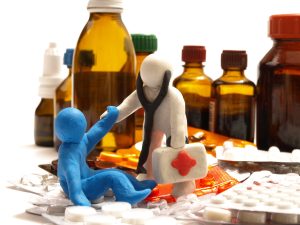Healthcare Consulting – Substance abuse and medical aid recovery support
 Zee Gumede
Zee Gumede
Healthcare Consultant
_______________________________________________________________________________________________________
Substance abuse and the recovery support of medical aid schemes in South Africa
In South Africa, medical aid schemes dominate in the financial support structure for accessing quality healthcare. As to whether medical aids provide cover for substance abuse treatment, members are often uncertain.
Substance abuse increasingly affects a significant portion of the South African population, with as many as 15% estimated to suffer from drug addiction. It encompasses the harmful or hazardous use of psychoactive substances, including alcohol and illicit drugs, leading to negative health consequences and financial burdens. Factors contributing to substance abuse range from genetic vulnerability to environmental stressors and societal pressures.
According to the South African Society of Psychiatrists (SASOP), it is estimated that between 15 to 20% of the South African population suffers from drug addiction in one form or another. The South African Medical Research Council (SAMRC) came up with similar statistics from a 2018 survey.
 Cultural and societal factors determine what are acceptable or allowable forms of drug or alcohol use. Countries have public laws that determine what kind of drug use is legal or illegal. South Africa has relaxed the laws regarding the use of marijuana, and many other drugs have seen exponential usage since a very low base in the early 2000’s.
Cultural and societal factors determine what are acceptable or allowable forms of drug or alcohol use. Countries have public laws that determine what kind of drug use is legal or illegal. South Africa has relaxed the laws regarding the use of marijuana, and many other drugs have seen exponential usage since a very low base in the early 2000’s.
Medically, substance abuse is defined as the harmful or hazardous use of psychoactive substances, including alcohol and illicit drugs. In addition to the direct negative impact illicit drugs have on medical aid members, there is also the knock-on effect of the financial consequences for members, their families, and society in general. The causes of substance abuse are complex and diverse, and include:
- sociodemographic trends such as gender, age, the rate of urbanisation, and genetic vulnerability.
- environmental stresses.
- social pressures.
- individual personality characteristics.
- psychiatric problems.
Fortunately, medical aid schemes recognise the severity of substance abuse and provide coverage under prescribed minimum benefit (PMB) regulations. These regulations ensure that members have access to essential health services for substance abuse treatment, including diagnosis, consultations with healthcare professionals, and up to three weeks of in-hospital treatment per year.
To access these benefits, members must adhere to the protocols outlined by their medical aid scheme, which will likely involve obtaining authorisation for rehabilitation purposes and utilising designated service providers to avoid co-payments.
Supporting a sober workplace – The role of employers
Substance abuse not only affects individuals and their families but also has significant implications for employers. Decreased productivity and financial strain are common outcomes, highlighting the need for workplace intervention. Employers can play a crucial role in supporting staff through Employee Assistance Programs (EAP), which offer counseling, treatment, and rehabilitation services.
In cases where employers cannot afford a formal EAP, HR departments can provide less structured support including referrals to professionals and self-help groups such as Alcoholics Anonymous (AA). By addressing substance abuse in the workplace, businesses can foster a supportive environment and promote employee well-being, ultimately ensuring better productivity.
Accessing medical aid benefits for substance abuse treatment requires that specific processes outlined by the medical scheme be followed. Members must request authorisation for rehabilitation – except in emergencies – and ensure compliance with scheme protocols to avoid additional costs. As with any defined cover, members should familiarise themselves with their medical scheme before incurring any costs or claiming from the medical aid.
 Substance abuse is a complex medical issue with far-reaching consequences. With the support of a medical aid scheme, members can embark on a journey of recovery. Businesses cannot afford to ignore substance abuse as not being a corporate responsibility and can assist their employees and their profitability by implementing supportive policies and programs in the workplace.
Substance abuse is a complex medical issue with far-reaching consequences. With the support of a medical aid scheme, members can embark on a journey of recovery. Businesses cannot afford to ignore substance abuse as not being a corporate responsibility and can assist their employees and their profitability by implementing supportive policies and programs in the workplace.
Based on global trends, South Africa’s stats over the past 20 years, and ever-relaxing legislation, this is a medical condition that needs to be understood and provided for.







